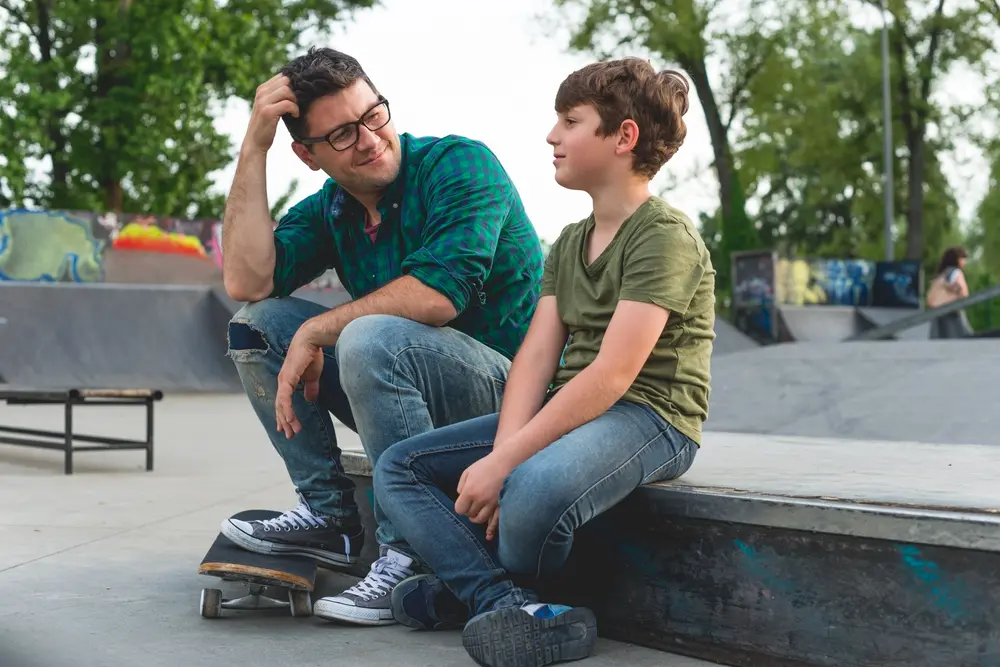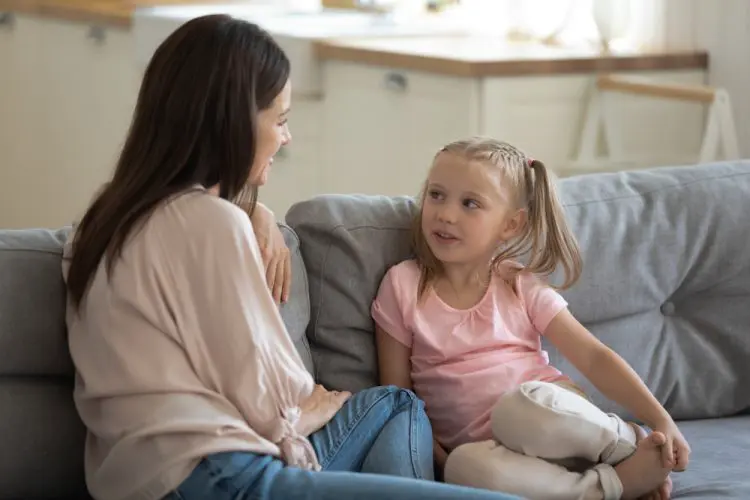How honest we should be with our children is a popular topic of debate.
Historically, parents and society would have erred on the side of not being honest at all with children, hiding “adult” business and keeping secrets.
Nowadays, we have a much more modern approach to parenting which acknowledges how influenced our children are by what we say and do, even when we think they can’t hear us.
But how honest actually should we be with our children?
What helps them and what harms them?

That is a topic that continues to be up for debate, and we’d love to hear what you have to think about it in the comments below. Parenting is such an important topic and there are so many people in the world, of course, there is going to be a wide range of different opinions. But we see this as a good thing.
We want to hear what other parents think and why so that we can continue to grow and develop ourselves.
From our frame of reference, here is what we think.
A certain amount of honesty with children is good, too much is harmful and inappropriate.
Let’s look at an example.
You are really stressed out at work. There have been a lot of staff lay-offs after Covid and you worry about the state of your contract. You know you are a good worker but you are still on a 3 month probation period and so your job could be ended more easily than others. As a result, one night you are overwhelmed and are crying in the bathroom when you think your children are asleep. One child overhears you, comes to the bathroom, and asks you what’s wrong.
How honest should you be?

If you say “I’m fine, nothing is wrong”, your child will still know deep-down that something is wrong and so will feel confused and conflicted. This could even cause them to worry more as they could imagine all possible reasons you are sad. It also reinforces to them that when we are sad, we don’t talk about it.
So this isn’t a good option.
But, on the other hand, if we tell our child the full truth of the situation of our job and tell them we are worried we won’t be able to pay the mortgage this month, this is hugely inappropriate. A child isn’t in the position to process this information and it is way above their age. They will be stressed and scared.
So what do we do?
Meet in the middle.
We tell them we are upset. We acknowledge that we are showing signs of upset and we are crying, which our child can see. We acknowledge the reality of the situation.

But we don’t tell them the adult information behind it. Maybe we say our week at work was tough and we had lots of work to do so we are very tired. Our children can relate to that with school and homework. Maybe we tell them we had a bad day and someone was mean to us, they can relate to this too.
We tell them the truth in a way that is appropriate for their age. We show them life is tough but we aren’t putting the burden on them. They don’t have to worry for us, they don’t have to solve our problems.
But we don’t lie to their faces and deny their reality.
It’s a healthy balance.
And it builds emotional intelligence.
Do you agree?



